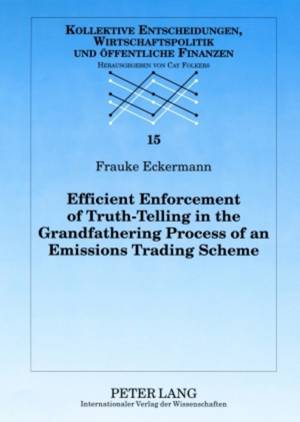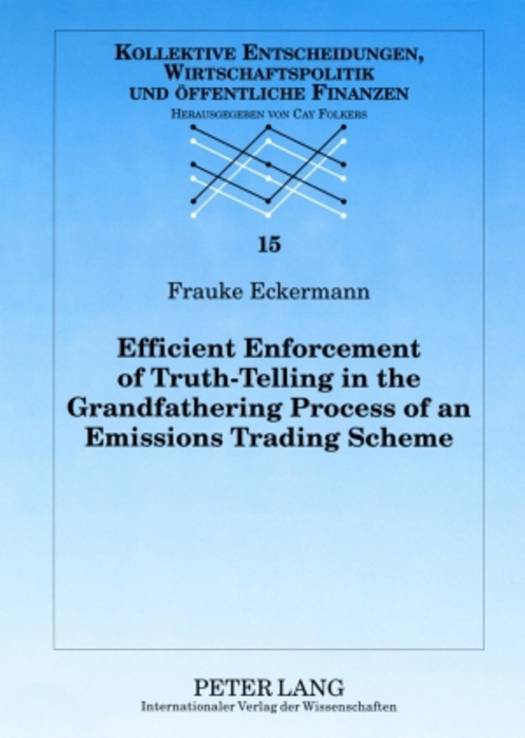
Bedankt voor het vertrouwen het afgelopen jaar! Om jou te bedanken bieden we GRATIS verzending (in België) aan op alles gedurende de hele maand januari.
- Afhalen na 1 uur in een winkel met voorraad
- Gratis thuislevering in België vanaf € 30
- Ruim aanbod met 7 miljoen producten
Bedankt voor het vertrouwen het afgelopen jaar! Om jou te bedanken bieden we GRATIS verzending (in België) aan op alles gedurende de hele maand januari.
- Afhalen na 1 uur in een winkel met voorraad
- Gratis thuislevering in België vanaf € 30
- Ruim aanbod met 7 miljoen producten
Zoeken
Efficient Enforcement of Truth-Telling in the Grandfathering Process of an Emissions Trading Scheme
Frauke Eckermann
€ 50,45
+ 100 punten
Omschrijving
Emissions trading as an instrument to reduce greenhouse gases has found increasing approval over the last years. One of the challenges in putting this instrument into practice is the self-reported character of all firm data. High verification standards are therefore essential, but also costly. This analysis answers the question of how, in the grandfathering process of an emissions trading scheme, self-reported firm data can be verified in a cost-efficient way. The method used is a principal-agent model similar to those in the tax-evasion literature. Policy recommendations include specific combinations of random audits and penalties for fraudulent reporting. From a technical perspective the analysis reveals that the efficient verification of private data strongly depends on whether there are incentives to overstate or to understate the private data and that the standard equity-efficiency tradeoff does not prevail in this context.
Specificaties
Betrokkenen
- Auteur(s):
- Uitgeverij:
Inhoud
- Aantal bladzijden:
- 130
- Taal:
- Engels
- Reeks:
- Reeksnummer:
- nr. 15
Eigenschappen
- Productcode (EAN):
- 9783631584026
- Verschijningsdatum:
- 10/11/2008
- Uitvoering:
- Paperback
- Formaat:
- Trade paperback (VS)
- Afmetingen:
- 148 mm x 210 mm
- Gewicht:
- 199 g

Alleen bij Standaard Boekhandel
+ 100 punten op je klantenkaart van Standaard Boekhandel
Beoordelingen
We publiceren alleen reviews die voldoen aan de voorwaarden voor reviews. Bekijk onze voorwaarden voor reviews.









